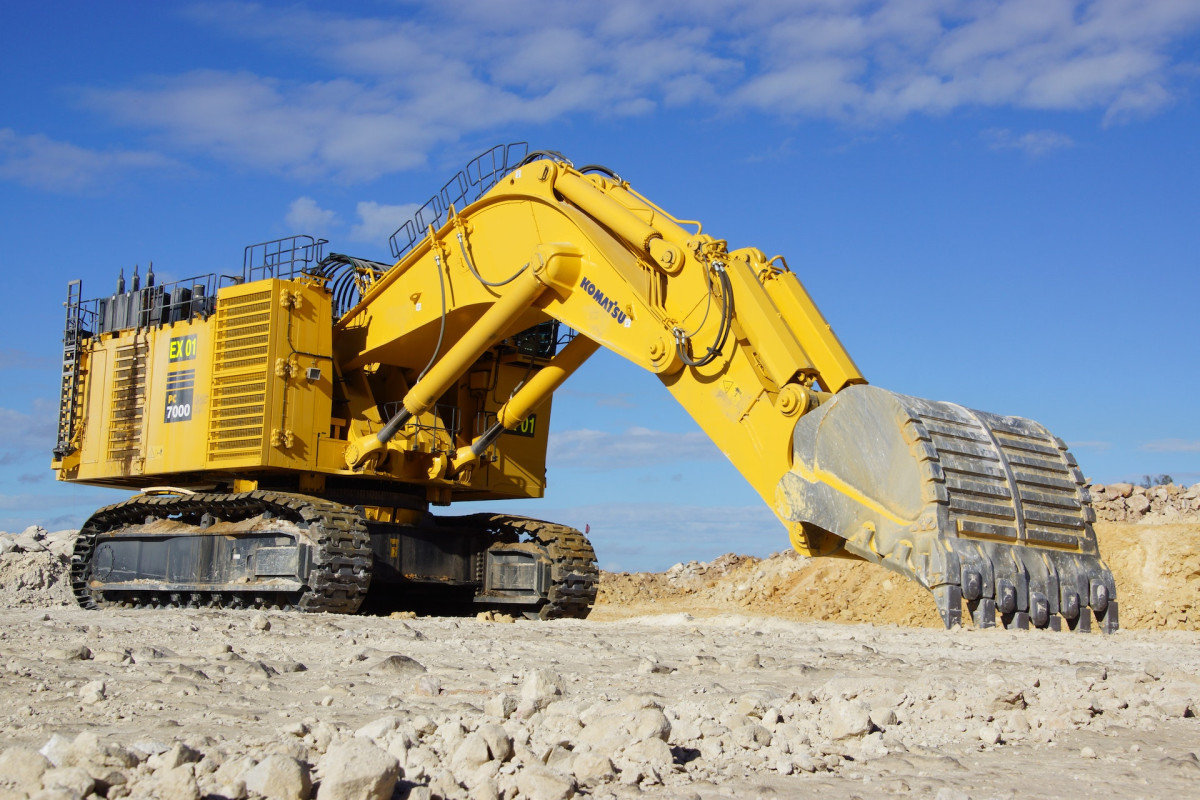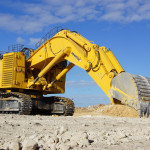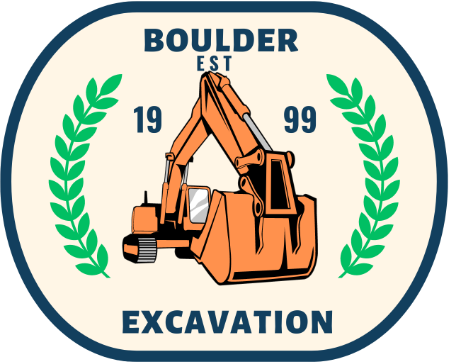Boulder Excavation and Landscape LLC
5505 Valmont Rd LOT 19, Boulder, CO 80301, United States
720-619-2407
Introduction

Residential excavation permits in Boulder, Colorado are a crucial component of any excavation project in this affluent and picturesque city nestled near the mountains. As an expert in the field, it is imperative to emphasize the importance of obtaining permits before undertaking any residential excavation endeavors. These permits serve as a legal requirement and play a pivotal role in ensuring safety, adhering to regulations, and preserving the natural landscape of Boulder and its surrounding areas.
Understanding Residential Excavation Permits
Residential excavation permits are official authorizations granted by the relevant local authorities in Boulder, Colorado, allowing property owners or contractors to undertake excavation projects on their residential properties. These permits serve several important purposes and offer numerous benefits for both the individuals involved and the community as a whole.
- Purpose and Benefits of Obtaining Permits:
- Compliance with Regulations: Residential excavation permits ensure that excavation projects adhere to local building codes, zoning ordinances, and environmental regulations. This compliance helps maintain the integrity of the community and safeguards against potential hazards or disruptions.
- Safety Assurance: Permits require adherence to safety standards, ensuring that the excavation project is executed in a manner that minimizes risks to workers, nearby residents, and the surrounding environment.
- Environmental Preservation: By obtaining permits, property owners commit to implementing measures that minimize the ecological impact of excavation. This includes erosion control, sedimentation management, and proper disposal of excavated materials.
- Legal Protection: Having valid permits safeguards property owners from potential legal issues, disputes, or penalties. It also establishes a record of compliance, which can be beneficial for future property transactions or insurance claims.
- Professional Reputation: Contractors who obtain and consistently adhere to excavation permits build a reputation as responsible and law-abiding professionals, enhancing their credibility in the industry.
- Legal Requirements for Excavation Permits in Boulder, Colorado:
- Specific requirements for residential excavation permits may vary depending on the jurisdiction within Boulder, Colorado. It is crucial to consult the local building department or planning commission to ensure compliance with the specific regulations applicable to the project.
- Generally, the permit application process entails submitting detailed plans, including project specifications, site plans, drainage considerations, and erosion control strategies.
- Property owners or contractors may need to provide proof of liability insurance, demonstrate competency in excavation practices, and pay the requisite fees.
- Some excavation projects may require additional permits or approvals, such as those involving protected or sensitive areas, historical sites, or water bodies.
Types of Excavation Projects Requiring Permits
Residential excavation permits are typically required for a range of projects that involve ground disturbance or earthmoving activities. Understanding the different types of excavation projects that necessitate permits can help property owners and contractors navigate the process more effectively.
- Common Residential Excavation Projects Requiring Permits:
- Foundation Excavation: When constructing a new residential building, excavating the site to prepare for the foundation is a common requirement. This includes digging trenches, leveling the ground, and creating the necessary space for the foundation.
- Basement or Crawl Space Excavation: Adding or expanding a basement or crawl space often involves excavation work, requiring permits to ensure structural integrity and compliance with safety regulations.
- Driveway or Pathway Excavation: Excavating land to create driveways, pathways, or access roads on residential properties typically falls under permit requirements, as it involves modifying the existing terrain.
- Retaining Wall Construction: Excavation for the installation of retaining walls, which are essential for managing slopes or preventing erosion, often necessitates permits due to the potential impact on surrounding land and drainage patterns.
- Landscaping and Pool Installation: Projects involving significant grading, reshaping of the land, or the construction of swimming pools usually require permits to address potential drainage issues, erosion control, and compliance with safety standards.
- Examples of Excavation Projects in Boulder and Surrounding Areas:
- Excavation for Mountain Homes: Given Boulder's proximity to mountains, excavation projects involving the construction of residential properties on sloped terrains are common. These projects often require specialized engineering and excavation techniques to overcome the challenges posed by the steep topography.
- Drainage and Erosion Control Excavation: Boulder's mountainous terrain necessitates excavation projects focused on managing drainage and erosion on residential properties. These projects aim to prevent landslides, control stormwater runoff, and protect against property damage.
- Site Preparation for Outdoor Amenities: Excavation permits may be required for creating outdoor amenities such as terraces, patios, or outdoor entertainment areas. These projects often involve reshaping the land, excavation for foundations, and ensuring proper drainage to enhance usability and minimize environmental impact.
By understanding the various types of excavation projects that require permits in Boulder, property owners, and contractors can better prepare for the permit application process and ensure compliance with local regulations specific to their project scope and location.
The Permit Application Process
Obtaining residential excavation permits in Boulder, Colorado involves a systematic application process that property owners or contractors must follow. Familiarizing oneself with the steps and gathering the necessary documentation and information can facilitate a smoother application experience.
- Step-by-Step Process for Obtaining Excavation Permits:
- Research Local Regulations: Begin by researching the specific excavation regulations and permit requirements set forth by the local building department or planning commission in Boulder, Colorado.
- Plan Preparation: Prepare detailed plans and specifications for the excavation project. This includes site plans, excavation depths, proposed drainage systems, erosion control measures, and any other relevant information required by the local authorities.
- Complete the Application: Obtain the official permit application form from the appropriate local authority. Fill out the form accurately and provide all requested information, including property details, project scope, contractor information (if applicable), and contact details.
- Gather Required Documentation: Compile the necessary documentation, which may include property ownership documents, liability insurance certificates, contractor licenses (if applicable), engineered plans, and any other documents specified by the local authorities.
- Submit the Application: Submit the completed application form and accompanying documentation to the designated office or online portal. Ensure that all required fees are paid at the time of submission.
- Review and Approval: The local authorities will review the application, plans, and documentation to ensure compliance with regulations. This review process may involve consultation with various departments or agencies, such as zoning, environmental, or engineering departments.
- Inspections and Compliance: Once the application is approved, inspections may be scheduled at different stages of the excavation project to verify compliance with the approved plans and regulations.
- Permit Issuance: Upon successful completion of inspections and compliance, the excavation permit will be issued, allowing the project to commence within the specified timeframe.
- Necessary Documentation and Information for the Application:
- Property ownership documents or authorization if not the owner
- Completed permit application form with accurate and detailed information
- Detailed project plans, including site plans, drainage plans, and erosion control strategies
- Liability insurance certificates, demonstrating coverage for the excavation project
- Contractor licenses and certifications, if applicable
- Engineered plans or calculations, where required
- Any additional documentation specified by the local authorities
- Specific Requirements or Regulations in Boulder, Colorado:
- It is crucial to consult the Boulder County Land Use Department or the relevant local building department to understand specific excavation requirements and regulations applicable to the project location.
- Boulder may have additional regulations related to erosion control, stormwater management, protection of natural resources, or preservation of historic sites. Compliance with these regulations may be necessary during the excavation permit application process.
Understanding Permit Fees and Costs
Residential excavation permits in Boulder, Colorado are subject to fees that vary depending on the project's scope, scale, and specific requirements. Understanding the typical fees associated with permits, factors influencing the cost, and any unique fee structures or considerations specific to Boulder is essential for budgeting and planning purposes.
- Typical Fees Associated with Residential Excavation Permits:
- Application Fee: A non-refundable fee paid at the time of submitting the permit application.
- Plan Review Fee: This fee covers the cost of reviewing the excavation plans and associated documentation.
- Inspection Fee: Some permits may require inspections at various stages of the project, and fees are charged for these inspections.
- Impact Fees: In certain cases, Boulder may impose impact fees to mitigate the effects of the excavation project on public infrastructure, such as roads or utilities.
- Factors Influencing Permit Costs:
- Project Size and Complexity: The size and complexity of the excavation project, including the area to be excavated, the depth of excavation, and the nature of the terrain, can influence permit costs.
- Environmental Considerations: Projects that involve sensitive or protected areas, such as wetlands or wildlife habitats, may require additional assessments or mitigation measures, which can impact permit fees.
- Timeframe and Rush Processing: Expedited processing or accelerated permit issuance may incur additional fees.
- Specialized Engineering or Reports: Certain projects may necessitate specialized engineering studies or reports, such as geotechnical assessments or slope stability analyses, which can increase permit costs.
- Specific Fee Structures or Considerations in Boulder, Colorado:
- To determine the exact fee structures and considerations in Boulder, it is crucial to consult the Boulder County Land Use Department or the local building department. They can provide information on specific fee schedules, waivers, or any unique factors that may affect permit costs.
By understanding the permit application process and the associated fees and costs, property owners and contractors in Boulder, Colorado can adequately prepare for the financial aspects of their excavation projects and ensure compliance with local regulations.
Potential Challenges and Considerations
The process of obtaining residential excavation permits in Boulder, Colorado may present various challenges and considerations. It is important to anticipate and address these potential obstacles to ensure a smooth permit application process.
- Potential Challenges and Obstacles:
- Regulatory Complexity: Navigating the specific regulations and requirements related to excavation permits can be complex and time-consuming. It may involve coordinating with multiple departments or agencies, each with its own set of guidelines.
- Documentation Requirements: The extensive documentation required for permit applications, such as detailed project plans, engineering reports, and insurance certificates, can be overwhelming. Ensuring that all documentation is accurate, complete, and submitted promptly can be a challenge.
- Environmental Considerations: Boulder's mountainous terrain presents unique environmental considerations. Excavation projects may need to address erosion control, stormwater management, and preservation of natural resources. Understanding and incorporating these considerations into the permit application can be challenging.
- Local Stakeholder Engagement: In some cases, excavation projects may impact neighboring properties or communities. Gaining support from local stakeholders and addressing any concerns they may have can be crucial for a successful permit application.
- Overcoming Challenges Effectively:
- Research and Preparation: Thoroughly research the specific excavation regulations and requirements in Boulder, Colorado. Understand the applicable laws and guidelines to better navigate the permit application process.
- Professional Guidance: Seek assistance from professionals, such as excavation contractors, engineers, or permit expeditors, who have experience with the local permitting process. Their expertise can help navigate potential challenges more efficiently.
- Clear Communication: Maintain open and transparent communication with the local authorities, building departments, and relevant stakeholders throughout the permit application process. Seek clarification when needed and promptly address any concerns or inquiries.
- Proactive Problem-Solving: Anticipate potential challenges and address them proactively. Develop contingency plans for potential issues that may arise during the excavation project. This proactive approach demonstrates preparedness and commitment to compliance.
Tips for a Successful Permit Application
A successful permit application is essential for a smooth excavation project. Consider the following tips to increase the chances of obtaining the necessary permits in Boulder, Colorado.
- Accurate Documentation: Ensure that all documentation, including project plans, engineering reports, and insurance certificates, is accurate, complete, and in compliance with local regulations. Double-check all information and make necessary revisions before applying.
- Effective Communication: Maintain clear and prompt communication with local authorities and stakeholders throughout the process. Address any inquiries or requests for additional information promptly and professionally.
- Engage Early: Start the permit application process well in advance to allow ample time for reviews, revisions, and potential adjustments. Early engagement helps prevent delays and allows for proper planning of the excavation project.
- Seek Professional Assistance: If needed, consult professionals with expertise in excavation permits, such as permit expeditors or consultants. Their experience and knowledge can help streamline the application process.
- Follow-Up: Regularly follow up on the status of the permit application. Maintain a record of all interactions, including dates, names of individuals involved, and any relevant information exchanged.
Final Thoughts
Residential excavation permits are of utmost importance when undertaking excavation projects in Boulder, Colorado. Adhering to the local regulations and obtaining the necessary permits not only ensures compliance with the law but also promotes safety, environmental responsibility, and proper project planning. Prioritizing the permit application process can save time and avoid potential legal and financial consequences.
By understanding the permit application process, being aware of the specific requirements and regulations in Boulder, and utilizing available resources and support, property owners and contractors can navigate the excavation permit process more effectively. Remember to engage with local authorities, seek professional guidance if needed, and maintain accurate documentation throughout the process.
Ultimately, obtaining excavation permits demonstrates a commitment to responsible construction practices, environmental stewardship, and community welfare. It is essential to prioritize permits and work in collaboration with the local authorities to ensure the success and compliance of residential excavation projects in Boulder, Colorado.
Boulder Excavation and Landscape LLC
5505 Valmont Rd LOT 19, Boulder, CO 80301, United States
720-619-2407





